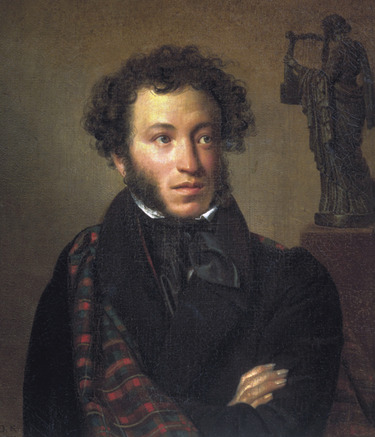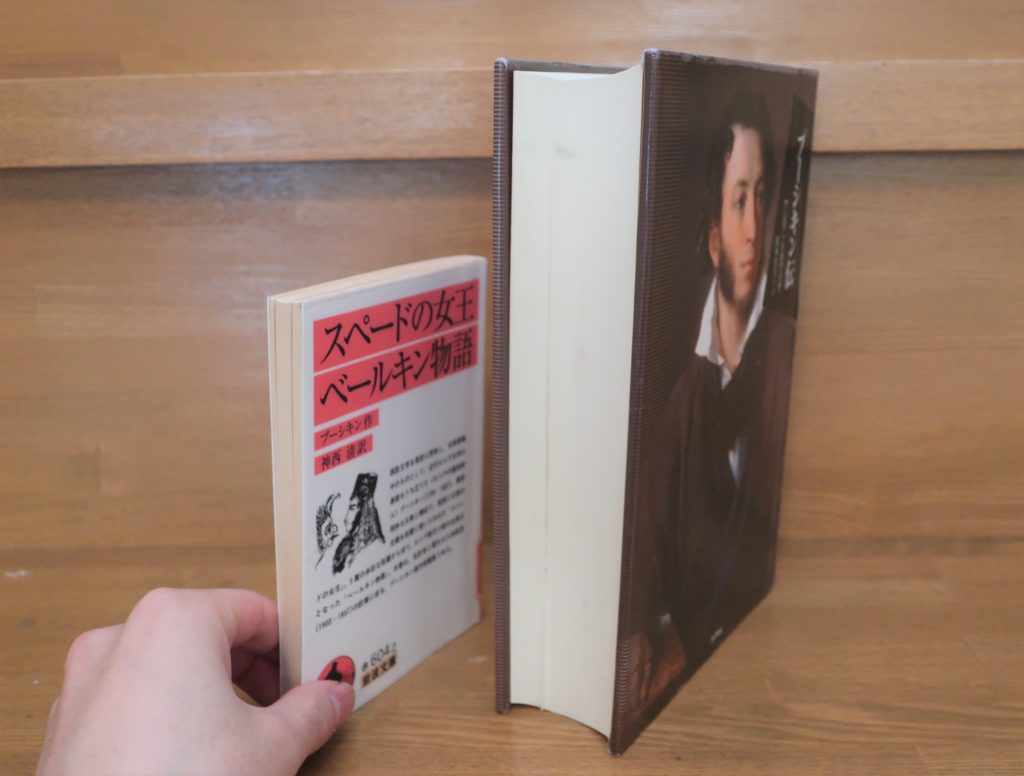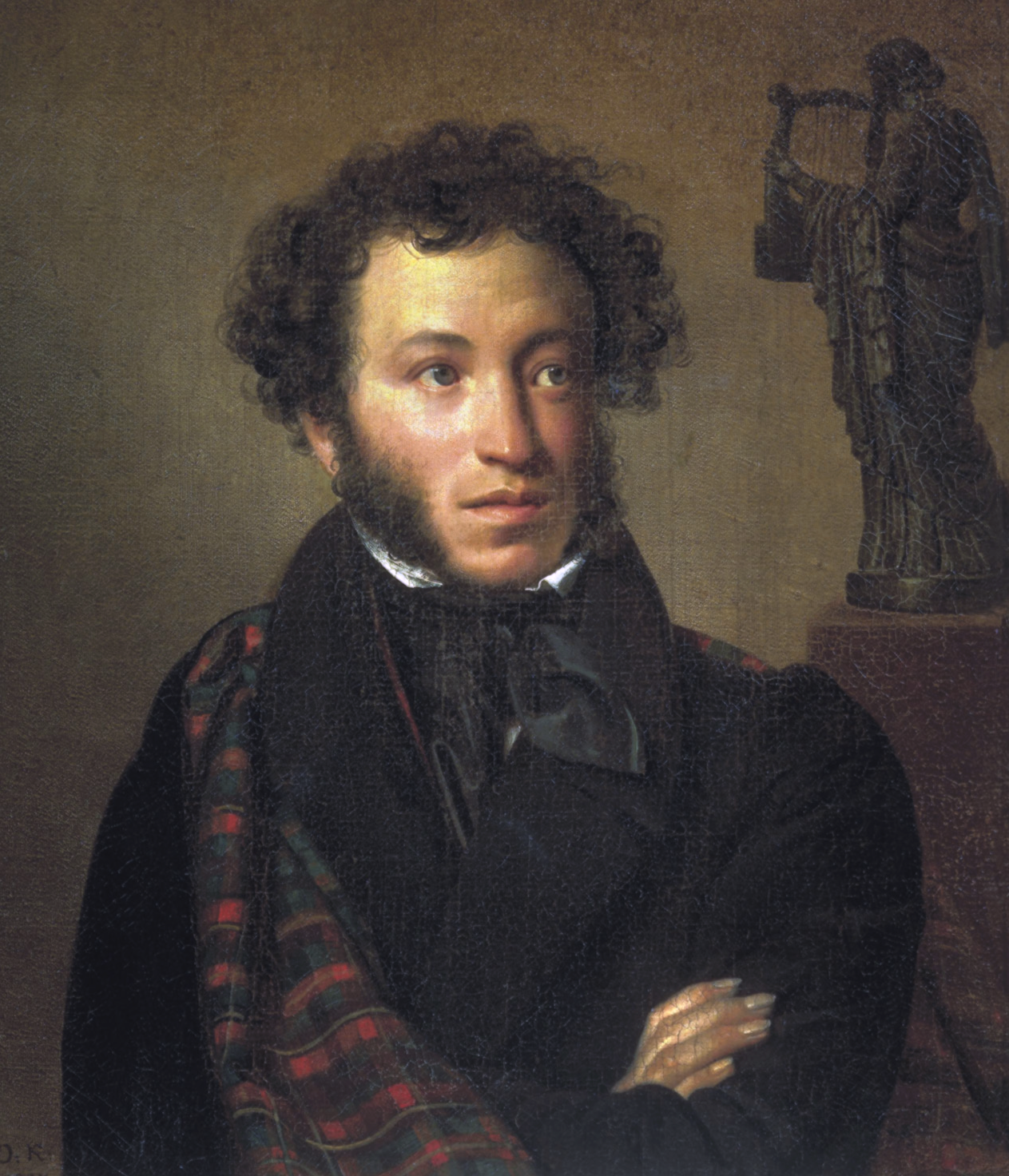Table of Contents
Introduction.

Pushkin, Russia's national poet, was Dostoevsky's favorite and most respected literary figure.
Dostoevsky was absorbed in his poetry from an early age and remained with his work until his last days.
Although Pushkin's name is well known in Japan, not much is known about who he was or what kind of works he left behind.
In Russia, he is so loved by the people that he is called the national poet, and it is said that all Russians can recite his poems by heart even today. In fact, my Russian teacher could recite them with ease. Pushkin is the heart of the Russian people. He expressed all of our hearts," my teacher told me afterwards. He is such a beloved poet.
In Japan, it is similar to the "Tale of the Heike," famous for the sound of the bell at Gion Seisha, or the feeling of "mono no ahare" that we recite and feel in our hearts, "Ah, I see..." I guess.
Anyway, it seems that Pushkin was such an influential figure in the Russian mind.
In this article, we will talk briefly about Pushkin.
Pushkin's masterpiece
Pushkin (1799-1837) was a great poet who was called the National Poet.
His best-known works are.
1820 "Ruslan and Ludmila"
1822The Caucasus Prisoner of War
1824 "Bakhchisaray Fountain"
1825Boris Godunov."(*Published in 1830)
1827 "Gypsy."
1830The Stingy Knight., ,Mozart and Salieri., ,The Guest of Stone, ".Sake Brewing During the Plague Epidemic"
1831The Beerkin Story."
1825-1832Evgenii Onegin."
1833The Bronze Knight.
1833The Queen of Spades.
1836The Captain's Daughter.
These include
Pushkin lost his life in 1837 when he was lured into a duel by a conspiracy of aristocrats.
If not for that duel, Pushkin, then 38 years old, would have produced many more masterpieces. We will talk more about this duel later.
What is Pushkin?
What is Pushkin like as a writer? Here is a quote from a commentary that is perfect for understanding this.
There is no one in our country who does not know the name of Pushkin as the national poet of Russia. If we were to seek a name in Russia comparable to Shakespeare in England, Goethe in Germany, or Dante in Italy, we could think of no other name than Pushkin's. Gogol, Dostoyevsky, Tolstoy, and others all have their names. We can safely say that Gogol, Dostoyevsky, Tolstoy, and others could not have been born without Pushkin.
Says Gogol: "When I hear the name Pushkin, I immediately think of the idea of the Russian national poet. -When I hear the name Pushkin, I immediately think of the Russian national poet. No poet in our country is more aptly called a national poet than Pushkin. That is precisely the name for him. In him, just as in a dictionary, the richness, power, and freedom of our language reside. He, more than anyone else, has expanded the boundaries of the language and shown it in every corner of its territory. Pushkin is an extraordinary manifestation, perhaps the one and only manifestation of the Russian spirit. He is what the Russian people should look like at the extreme end of their development, that is, after 200 years of age. In him, the nature of Russia, the heart and soul of Russia, the language of Russia, and the disposition of Russia are all reflected, as pure and splendid as the landscape reflected on the convex surface of an optical lens. ......"
Pushkin, The Queen of Spades, A Tale of Beelkin, translated by Kiyoshi Kannishi, Iwanami Bunko, p. 261.
Moreover, what would Dostoyevsky, who was, in a sense, one of Pushkin's most distinguished successors, say about his great master? Let us consider the following quotation from his Pushkin essay (translated by Masao Yonekawa, "Diary of a Writer," Kawade Shobo edition): - "I say categorically, Pushkin is a great master. -I say unequivocally that no other poet has ever possessed such a gift for global resonance as Pushkin. And the problem here is not merely one of resonance, but of astonishing depth and the ability to assimilate one's own spirit into that of other peoples. The assimilation is so complete and so miraculous that no poet in the world has ever repeated such a phenomenon. This is entirely unique to Pushkin, and in this sense, we repeat, he is an unprecedented phenomenon, a prophetic one if we may say so. ......"
In other words, according to Dostoevsky, Pushkin is already more than a national poet; he is a world poet who resonates and sympathizes with the soul of the world.
Pushkin, The Queen of Spades, A Tale of Beelkin, translated by Kiyoshi Kannishi, Iwanami Bunko, p. 263-4.
These two quotes show how Pushkin has captured the hearts and minds of the Russian people, and how he has had a profound influence on subsequent generations.
Russian literature scholar Kawabata Kaori also noted that
In the history of Russian literature, it has traditionally been called Pushkin, the father of Russian literature, or Pushkin, the national poet. The former "father" is a translation of Rodnacharnik (founder). (What is more important about Pushkin is that he was not only the founder of modern Russian literature, but also the founder of the Russian literary language.
The expression "national poet" means that he is the most national poet, that is, the best poet who best represents the characteristics of his country. In the list of Greek Homer, Roman Vergilius, Italian Dante, English Shakespeare, German Goethe, etc., Russian Pushkin would be placed.
Kaori Kawabata, "Russia: Its People and Its Heart," P155-156
Before Pushkin, there was no such thing as beautiful literature written in Russian. The Russian intelligentsia wrote their daily conversations and letters in French, and no one thought of creating beautiful literature in Russian.
It was Pushkin who, in the midst of these times, reviewed the Russian language, the soul of the Russian people, and elevated it to the level of a perfect art form, which had not previously been considered an art form, and gave it the form of poetry.
Pushkin's greatness lay in the fact that he was able to portray the Russian mind so beautifully and, moreover, elevate the previously inferior language to the status of an art form.
Therefore, it is said that Pushkin's poems lose their brilliance when translated. Of course, the translators have taken great pains to translate the plot and the flow of words.
However, the sensation of receiving Pushkin's works in the Russian language, as heard by Russians, is very different from that of foreigners who hear translations of his works.
The native language of a country is very important.
Pushkin was called the national poet because he created a national literature for the Russian people.
Life and Death of Pushkin
Pushkin was born in Moscow in 1799 to an aristocratic father of an old family.
In 1811, when Pushkin was 12 years old, he entered the newly established Academy of Study, and by the time he was 15, his genius was already beginning to show itself, as his poem "To My Friend the Poet" was published in the "Europe Notification" magazine.
Then, after finishing school at the age of 18, he worked for the Foreign Service and began to devote himself to socializing and writing poetry.
However, his poetry was perceived as anti-establishment and he was exiled to South Russia.
From this point on, Pushkin's period of disadvantage and wandering would continue, but his fame would increase with the publication of a number of works written during this period, especially a portion of "Eugenii Onegin."
He returned to Moscow in 1826. Although monitored by the Czar and the aristocracy, he returned to social life and continued to write poetry. In 1830, he married Natalya Goncharova, who became a major turning point in his life.
She was a very beautiful woman.
He thought he had a happy married life ahead of him, but she was the cause of his life's destruction.
In 1834, his wife Natalya was introduced to the court because of her beauty. She was in great demand and had to be present at every event, placing herself in a dangerous situation of jealousy, envy, and temptation.
The following is a quote from Pushkin's commentary on "The Queen of Spades, A Beelkin Tale".
This lifestyle not only deprived the poet of time for contemplation and writing, but also eroded his family's peace. Not only that, but it was accompanied by a great deal of expense, which completely ruined the poet's financial condition, who had a habit of spending lavishly. Finally, he petitioned the emperor for a loan of 30,000 rubles from the treasury. The courtiers and literary rivals who took advantage of the poet's weakness became more and more vicious and blatant in their attempts to entrap him. The poet longed for freedom and dreamed of escape. But nothing could be done. The poet was now a prisoner of the court.
Soon after, the final catastrophe occurred. In the fall of 1836, the poet was forced to challenge a young officer of the Imperial Guard named Dantes to a duel. Dantes was originally an exiled French aristocrat who had been adopted by the Dutch minister in Russia and had become a popular figure in social circles for his beauty and wit. He had been wooing Natalya, the poet's wife, for some time, and it is said that Natalya had reciprocated his favors to some extent, and their relationship had long been the subject of rumors in social circles. Finally, when the poet's reputation was severely disgraced by a suspicious letter, Pushkin finally sent a dueling letter to Dantes.
The duel did not go off without a hitch, due to the desperate attempts of the dismayed Dutch legate and even the intervention of the emperor himself. In the meantime, a wedding between Dantes and Natalya's sister was performed to prove that Dantes was actually in love with Natalya's sister. Dantes was not the kind of man who would change his ways. (omitted).
The duel took place on the evening of January 27, 1837 (Russian calendar) in the suburbs of Petersburg. Dantes fired a shot at the poet, who fell in the snow with a fatal wound in his abdomen, but he did not lose his fighting spirit and fired a single shot at his opponent, which only inflicted a graze wound. The poet died after a day and a half. The funeral was held under strict military police guard, and the funeral rites were conducted in secret.
Pushkin, The Queen of Spades, A Tale of Beelkin, translated by Kiyoshi Kannishi, Iwanami Bunko p281-283
The life and death of Pushkin are described in detail in Henri Troyer's "A Biography of Pushkin.


As you can see in the photo, Pushkin's life is described in a very large volume of over 770 pages. If you are interested in learning more about Pushkin's life, this is a great place to start.
Conclusion
In this article, I have given a brief overview of who Pushkin, Russia's national poet, was.
In the next article, I will discuss the relationship between Pushkin and Dostoevsky, and after that I will actually read his works.
Through his work, we will look specifically at his style, what made him great and what influenced Russian literature.
The above is a brief overview of "Who is Pushkin, Russia's National Poet? A brief description of his major works, life, and characteristics! The above is a brief explanation of Pushkin's representative works, life, and characteristics!
Next Article.
Related Articles







































